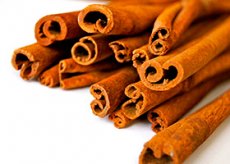New publications
The antimicrobial effect of cinnamon has been proven
Last reviewed: 02.07.2025

All iLive content is medically reviewed or fact checked to ensure as much factual accuracy as possible.
We have strict sourcing guidelines and only link to reputable media sites, academic research institutions and, whenever possible, medically peer reviewed studies. Note that the numbers in parentheses ([1], [2], etc.) are clickable links to these studies.
If you feel that any of our content is inaccurate, out-of-date, or otherwise questionable, please select it and press Ctrl + Enter.

Many folk recipes suggest using cinnamon as an antibacterial and disinfectant. However, official medicine has not used this product in any way, since such properties have not been scientifically proven. Now the situation may change radically: evidence of the antimicrobial effect of cinnamon oil has been obtained.
According to scientists from the Australian Swinburne University of Technology (Melbourne), one of the components of cinnamon oil does indeed have a pronounced antibacterial effect.
Scientists have paid special attention to such a pathogenic microorganism as Pseudomonas aeruginosa (also known as Pseudomonas aeruginosa). This bacterium is recognized as the most common pathogen of bacterial infectious and inflammatory diseases among patients with weak immune defense. For example, we are talking about patients with such pathologies as diabetes, cystic fibrosis, and malignant diseases. When an infection enters the body, certain bacterial groups are formed, enclosed in a protective capsule - the so-called biological film. Such a film counteracts the attack of antibiotics, blocks the immune defense, which leads to an increase in the duration of the disease and requires longer and more complex treatment.
A new study has allowed scientists to establish that a substance called cinnamaldehyde, isolated from cinnamon oil, has a pronounced antimicrobial effect. After conducting the experiment, specialists noticed that under the influence of cinnamaldehyde, more than 75% of biological films of bacterial groups were destroyed. Among other things, the formation of such a film slowed down, and the spread of microbes stopped. Scientists assume that, based on the information obtained during the study, it will be possible to develop new drugs in the future, with the help of which it will be possible to overcome many dermatological diseases. So far, only external use of such drugs is being considered.
Since the number of microbes resistant to antibiotic therapy is constantly increasing, it is extremely important for scientists to find an alternative to such treatment. Experts have confirmed that cinnamaldehyde isolated from cinnamon can become the basis for new specific antimicrobial drugs. Further research by scientists is just around the corner: presumably, new experiments will be conducted to study additional properties of the substance, determine possible toxicity, etc. For now, scientists do not recommend independently including cinnamon oil in the treatment of skin diseases - until a final scientific verdict is received.
The essence of the discovery is described in detail on the pages of the Microbiology Society website (https://microbiologysociety.org/news/press-releases/cinnamon-essential-oil-could-make-bacterial-infections-easier-to-treat.html).
